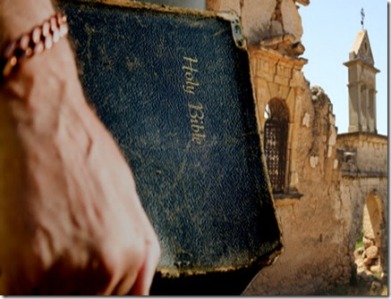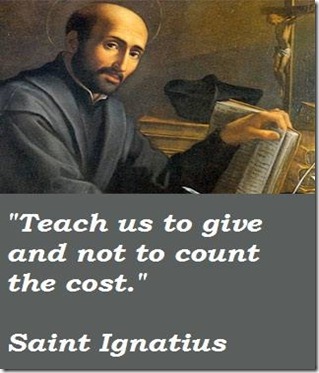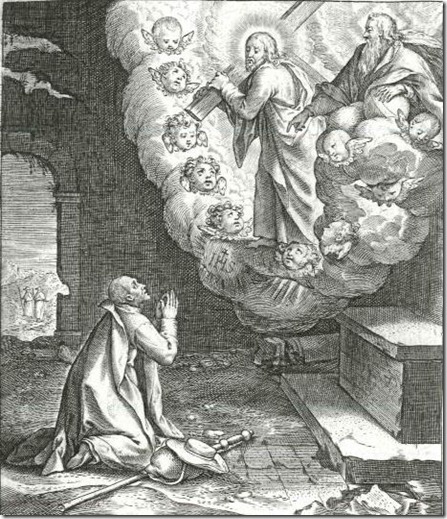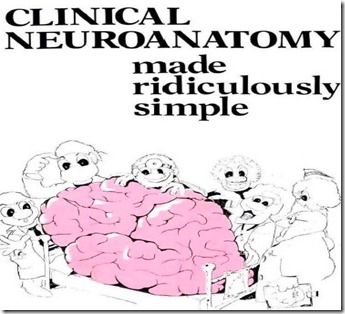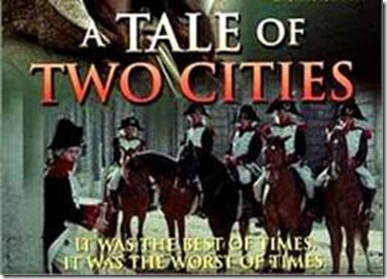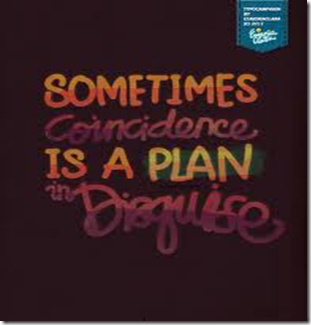Category Archives: Discernment
Deep questions

MY LORD GOD, I have no idea where I am going. I do not see the road ahead of me. I cannot know for certain where it will end. Nor do I really know myself, and the fact that I think that I am following your will does not mean that I am actually doing so. But I believe that the desire to please you does in fact please you. And I hope I have that desire in all that I am doing. I hope that I will never do anything apart from that desire. And I know that if I do this you will lead me by the right road though I may know nothing about it. Therefore will I trust you always though I may seem to be lost and in the shadow of death. I will not fear, for you are ever with me, and you will never leave me to face my perils alone.
Prayer by Thomas Merton
A Fantasy Trip through the ‘Dark Night of the Spirit’
Imagine John and Martha as a married couple approaching their seventy fifth birthdays. They enjoy good physical health, have a solid marriage, are very involved in their church and their community, are proud of their grown children- all of whom seem to be doing well- and take particular delight in their grandchildren. They are also financially secure enough to enjoy a comfortable retirement. One day they approach their parish priest and ask for his guidance, and this is the story they share: ‘Father, we have been long-standing and faithful parishioners here, and you know us well. We’re retired; we’re really enjoying our grandchildren. In fact, John has just built a huge deck off of our living room so that we have more space for our family when they drop round. There are so many options still open to us, so many things we would still like to do in our lives. But…but… we have been praying together, and praying a lot over the story of Abraham and Sarah and how when they were old, done with their childbearing years, God called them to set out for an unknown place and how it took them ten years to get there and then, when they arrived there, with them now well over eighty years old, Sarah got pregnant in some new way, and how that, this gray-haired and impossible pregnancy, became their real gift to the world…Well, we have been praying over this for a long time and we feel called in this way, like Abraham and Sarah. We feel that God is calling us into the big, big unknown as he did them. We have mulled over this for a long time and this is our plan: What we want to do is to sell our house and, after buying two one-way airline tickets, give the rest of money to the food bank (because Jesus said to sell everything and give the money to the poor). The one-way tickets we would buy would be for Pakistan. We feel that God is calling us to spend the rest of our lives as missionaries to Islam in Pakistan. We picked Pakistan because there is so much tension today between Christians and Muslims, and there is a need for more understanding between us. Our plan is to go there with no money and to live simply with the poor there, and to die there. We presented this plan to our children, and they were beyond belief, stunned and horrified. They think we are insane and demanded that, among other things, we talk to you. So what do you think of this idea?’
The priest, unless he was John of the Cross, would most certainly side with the view of their children: ‘You’re crazy! This is dangerous fundamentalism! This is the ultimate in naivete!’ But being a trained pastoral minister, he would attempt to dissuade them and bring them and bring them to their senses through logic. His first objection would be this: ‘You shouldn’t do this. You are needed here! Your children, your grandchildren, the church, the community, we need you! There is still so much that you can do. You’re still young, still healthy. You may not do this!’ But John and Martha are ready for this objection, having already thought this through: ‘We appreciate your saying that, and it’s nice to be wanted. But radically, we are not needed. What we have to give we have already given through the last fifty years. We did the work, we provided for our kids, and we love them deeply. But in going to Pakistan and ending our lives in this way, we want to give our kids and grandkids something else, something deeper, something that can be given only in spirit. We have already given them what we can give them humanly. We are doing this for them! They will miss us and we will miss them terribly, but that’s the price for this. Besides, yes, we are healthy, but we are no longer young. Either or both of us could be struck down by cancer or a stroke or something else, and we would be gone in any case. In twenty years, we’ll both most likely be gone, so we may as well do this of our own volition, when we can make it mean something deep.’ Dissatisfied but undaunted, the priest would move on to his second argument: ‘And how do you intend to live in Pakistan, once you have given all your money away? How will you eat? Where will you live? What will you do if you get sick and need a hospital?’ But again, John and Martha are ready for those questions: ‘That’s the real point of this. If we took along credit cards and had return tickets tucked away in case of an emergency that would defeat the real purpose of this. We need to do this on blind trust. We won’t starve, we’ll live somehow, we’ll beg, we’ll live off peoples’ kindness. We know this sounds utterly naïve, but God will provide for us somehow! Don’t think that we haven’t thought of this, and don’t think that we aren’t scared. We’re very scared; we don’t even know what we are going to do immediately after we get off the plane. But that is the point of this!’
With that response staring at him, the priest plays his last card: ‘Besides, the whole thing is wrong from the top down. You know nothing about Pakistan, nothing about the Islamic religion. Moreover, the last thing we need in the church and the world today is a couple of naïve, misguided missionaries, thinking they can save the world! You will do more harm than good!’ John and Martha have also already thought about this: You’re right. We are naïve, and maybe we are misguided. We don’t know anything about Pakistan and Islam, other than some rather superficial things we’ve picked u by reading a couple of books. But again, that is the point. We are there as sheep. We’re not going there to preach or to convert anyone. We just want to live among the people there and try to understand and love them. Maybe we will get killed, but we hope not. We are not going there to save the world; it’s more ourselves and our kids and grandkids whom we are trying to save!’ Now imagine what would happen if neither their family nor the priest could talk them out of their plan and they indeed went to Pakistan, stayed there, and died there. What would be the reaction of their family ten years after their deaths: ‘Our parents were crazy!’? More likely the reaction would be: ‘We had extraordinary parents! They did this incredible faith thing when they retired! What an incredible witness they gave us! What an incredible memory we have of them!’ And if they could articulate this in more religious terms, they might phrase it like this: ‘What a freeing and life-giving spirit they left us! They gave us their deaths as a gift!’
This fantasy might seem pretty fanciful and far-fetched. Who would ever do something like this? John of the Cross would, I suspect, answer the question this way: You may as well risk this kind of radical journey, because if you do not do this of your own volition, it will be done to you. Sometime, and it will happen to us all, we will walk into a doctor’s office and be given a death sentence. Or death will catch us even more unexpectedly in a heart attack, stroke, or accident. At that moment, metaphorically, we will have been handed our one-way ticket to the greatest of all unknowns and, from this journey, there will be no coming back. Palliative care awaits us all, and palliative care is a one-way ticket. We can enter it on our own, on purpose, or we can wait to be eventually taken there against our will. Either way, we will now stand before the same choice that Jesus had to make in the Garden of Gethsemane: How am I going to give my death over? In freedom or in clinging? In graciousness or in bitterness? In anger or in forgiveness? The particular spirit that our death leaves behind, our final gift to the ones left behind, will be determined on how and what we choose in our dying.
[Extracted from pages 300-305, SACRED FIRE- A Vision For A Deeper Human And Christian Maturity by Ronald Rolheiser]
Awaiting 2015!
Patient Trust
“Above all, trust in the slow work of God.
We are quite naturally impatient in everything
to reach the end without delay.
We should like to skip the intermediate stages.
We are impatient of being on the way to something
unknown, something new.
And yet it is the law of all progress
that it is made by passing through
some stages of instability—
and that it may take a very long time.
And so I think it is with you;
your ideas mature gradually—let them grow,
let them shape themselves, without undue haste.
Don’t try to force them on,
as though you could be today what time
(that is to say, grace and circumstances
acting on your own good will)
will make of you tomorrow.
Only God could say what this new spirit
gradually forming within you will be.
Give Our Lord the benefit of believing
that his hand is leading you,
and accept the anxiety of feeling yourself
in suspense and incomplete.”
—Pierre Teilhard de Chardin, SJ, excerpted from Hearts on Fire
Before embarking the brand new year in just few hours, I would like to offer the above prayer, Patient Trust.
While I was looking on something to read on my Facebook news just now, I found out two very helpful articles for me:
1. An Ignatian Framework for Making a Decision
2. Cardinal Dolan’s 10-step guide to holiness
especially I am going to plan for my resignation in 2 years time if God’s will. (saying YES to my door of religious life) Jesus, I love you and I know You will take care of me. In Jesus Christ, I put my total trust in You. Increase my trust in You Lord! Amen.
I would like to sum up my 2014 with the following phrase:
Praise the Lord!
The Characteristic of becoming Jesuit
(taken from the book, 34th General Congregation of the Society of Jesus)
1. Deep Personal Love for Jesus Christ
Here it will be to ask for an intimate knowledge of our Lord, who has become human for me, that I may love him more and follow him more closely.
2. Contemplative in Action
I shall not fail to recall that grace which he had in all circumstances, while at work or in conversation, of feeling the presence of God and of fasting spiritual things, of being contemplative even in the midst of action; he used to interpret this as seeking God in all things.
3. An Apostolic Body in the church
Finally we decided in the affirmative; namely that… we should not break this divinely constituted oneness and fellowship, but rather strengthen and consolidate it ever more, forming ourselves into one body.
4. In Solidarity with those most in need
And what they should especially seek to accomplish for God’s greater glory is to preach, hear confessions, lecture, instruct children, give good example, visit the poor in the hospitals, exhort the neighbour according to the amount of talent which each is conscious of possessing, so as to move as many as possible to prayer and devotion.
5. Partnership with Others
For that same reason too, preference ought to be shown to the aid which is given to the great nations, such as the Indies, or to important cities, or to universities, which are generally attended by numerous persons who by being aided themselves can become labourers for the help of others.
6. Called to Learned Ministry
After the pilgrim realized that it was not God’s will that he remain in Jerusalem, he continually pondered within himself what he ought to do. At last he inclined more to study for some time so he would be able to help souls, and he decided to go to Barcelona.
7. Men Sent, Always Available for new Missions
If they were not given permission to remain in Jerusalem, they would return to Rome and present themselves to the vicar of Christ, so that he could make use of them wherever he thought it would be to the greater glory of God and the service of souls.
8. Ever Searching for the Magis
Those who wish to give greater proof of their love, and to distinguish themselves in whatever concerns the service of the Eternal King and the Lord of all, will not only offer themselves entirely for the work but make offerings of greater value and of more importance.
Conclusion
Our way of proceeding is a way of challenge. But this way of proceeding is the reason why every son of the Society will always act and react in a consistently Jesuit and Ignatian way, even in the most unforeseen circumstances.
May we ever love more faithfully this way of Christ modelled for us by Saint Ignatius. For this we pray in a prayer of Father Pedro Arrupe:
‘Lord, meditating on our way of proceeding,’ I have discovered that the ideal of our way of acting is your way of acting.
Give me that sensus Christi that I may feel with your feelings, with the sentiments of your heart, which basically are love for your Father and love for all men and women.
Teach me how to be compassionate to the suffering, to the poor, the blind, lame and the lepers.
Teach us your way so that it becomes our way today, so that we may come closer the great ideal of Saint Ignatius: to be companions of Jesus, collaborators in the work of redemption.
p.s: Today 27 Sept, Pope Francis will celebrate the 200th anniversary of the Restoration of the Society of Jesus with vespers at the Church of the Gesù in Rome.
Simple Guide for Discernment by Melanie Yeoh (It’s more confusing than Neuroanatomy!)
Originally posted on Wednesday, February 8, 2012
Disclaimer: All my own opinions. Read at your own risk!
Discernment is like the start of “A Tale of Two Cities” -> ‘It was the best of times, it was the worst of times. It was the age of wisdom, it was the age of foolishness.’ It’s the BEST cos the world seems so lovely.. God loved us first, so our hearts have the capacity to love others. But it’s the WORST cos you’re suddenly confronted with a whole new world of change, of seeing how far you will go for Your Beloved. Wisdom given by God shows me the Way, but the foolishness and pride from myself keeps me from the Way.
I don’t think i will ever stop discerning God’s Will in my life. Everyday, every single minute is filled with choices. Some are easier than others (99 year old, bed-bound 10 years, Alzheimer’s with pneumonia. Intubate? Erm, NO) and some are slightly more complicated (What should i have for dinner? Ramly oblong chicken burger or nasi goreng kerabu seafood?! I like both! How?!) The day i stop discerning, is the day my pride and arrogance has won…
But i digress. The discernment I’m referring to is discernment for state of life. Many many many learned scholars have written many many many books on Discernment. Unfortunately, i haven’t read many books on this. I figured, the only one who can discern God’s Will for my state of life is myself, with God’s grace of course. I’ve noticed that He’ll drop hints and tips on and off on which direction He wants me to go.
So here’s what I’ve garnered, in a nutshell:
1. There is NO such thing as coincidence, no matter how much people around you will try and convince you that it exists.
If you are discerning, then you know that everything happens for a reason and for God’s purpose (hikmah, as my friends would say). But if that is the premise, then there is no room for the existence of this animal called ‘coincidence’… We might perceive it as coincidence, but in God’s eyes, He’s got something more up His sleeve!
2. Pride is a deadly sin.
Which i am guilty of fairly often… Being young and feisty, thoughts of morbidity and mortality lie far way from my mind. I assume that my family, friends, colleagues, patients need me, and how could they possibly do without me?! It’s fine if I’m alive and well. But who’s to say i don’t walk out the door and get hit by some crazed mat rempit? If i die, that’s a good thing. If i don’t die and am left paralysed from the nose down, then who will be caring for WHOM now…? So note to self: I am not God. Presumably if my GPS (God Positioning System) tells me to turn right/left cos there’s an obstacle or ravine ahead, then i can either follow instructions or choose to ignore my GPS on AOR (at own risk) basis.
*This GPS is more reliable than my Garmin, which likes to take me on the longest and most expensive route possible to get to my destination…*
3. Take it one step at a time
As Sr Anne fsp (a very wise person) would say “God gives us JUST enough grace for the day”. Basically, God will give you X amount of grace/day. Therefore, by the time you reach Obstacle A, you’d have enough accumulated grace to overcome said obstacle. You can speculate what might be ahead, but don’t be overly stressed about it. It’s like the lamp analogy – Life is like walking on a dark path with a lamp (and that ‘GPS’ in your heart) to guide your steps. With the lamp, you can see just one or two steps ahead, but that’s about it. The oil that keeps your lamp burning is prayer, all the good deeds you do, all the virtues you accumulate, and most importantly, God’s grace.
4. Be careful about picking the logical choice
Let’s face it.. This whole vocation thing is just NOT logical. I mean, if you look with the eyes of human logic, none of this makes sense! God falling in love with me? Leaving everything behind to follow a Divine Spouse that no one can physically see? But if you feel with your heart, everything makes perfect sense…
So practical applications! Just need to answer two questions:
A) How much do i love God (and, this being a relationship, how much does He love me..) and am i willing to give up all that i’m comfortable with right now, for Him?
– This one, only you and God can answer it. Generally, your heart knows what it wants, but your brain just has to catch up.
B) Which congregation/order?
– I credit this answer to my dear friend, Dr Anita Gonzalez.. She says “Choose the one you feel most at home with.” I interpreted this as – Let’s say you decide on Order X. If you happen to meet a Sr Grumpy (or, more likely, a whole bunch of Sr Grumpys) would you still stay with Order X? Cos entering an order is essentially like marrying a 100 husbands (this quote, i credit to my mother, Dr Gertrude).
If you can tolerate all their funny habits (no pun intended), and still love them for whom they are despite being Sr Bad Mood and Sr Perpetua(lly) PMS, then this is your home… Don’t choose based on logic, i.e. I’m a doctor, i should apply for FMM/FMDM/LSP/medically-related orders. Follow what your heart tells you (does NOT apply if you’re marrying a normal guy btw. That one, follow your head.) and choose that one, no matter how illogical it may seem to you!
5. Do a Gedankenexperiment (Google it…)
– This one is credited to Sr Shirley Chong, fsp. Well, she didn’t say this exactly, but i expanded on what she did. She used to lie down on her bed and see if she could imagine herself as a nun.
– What i did was lie down and imagine:
Scenario 1 – What my plan is for my life, i.e. transfer to a Klinik Kesihatan, then resign, then be a GP + charitable works + travel and see the world from time to time. Perfect! But…. had this tiny niggling feeling of uneasiness. Couldn’t quite figure out why. It looks like a great plan, don’t you think? Future certain, all systems GO!
Secnario 2 – With great reluctance and much scepticism, i acknowledge that PERHAPS, just MAYBE, remotely possible that my path is to enter the religious life. Pathway ahead is seriously unknown. Chances of practising as a doctor is not in my hands. How does THAT feel? Again with much reluctance, i have to admit that i felt peace and a deep joy within my heart, although my brain said “Heart, are you crazy?!”
– So try it out! It just might work for you… It worked for Einstein!
His greatest trick is to make you think he doesn’t exist. Remember that other forces are at work here. Whenever something happens (good, bad, or neutral), just kind of step back and evaluate the situation. Look with your heart, then look with your brain. Both can contribute! Heart is attune to God. Brain is better at recognising the devil.
Conclusion:
1.The crux of it all is that if your will is in line with the Holy Spirit within you, then you will feel at ease and at peace. The easiest way is to keep praying – “God, if this is not what You want for me, then please oh please take this desire away from me, cos it’s really stressing me out!” Things will happen.
2. I have heard that this lovey dovey feeling doesn’t last forever. One day, there will be a Dark Night of the Soul (dig out your St John of the Cross from the shelves). Hopefully, i’ll be ready for it and will mature, not regress.. So walk by faith, not by feeling. My heart will bring me closer to God, but my brain will sustain my vocation too.
3. If you’ve thought and pondered and discerned that this is the life for you, then STOP stressing on whether you’ve made the right decision! Done is done… Stop waffling!
Suggested Reading (if you only have time for one book)
-Story of a Soul by St Therese of Lisieux
Just my opinion, but i suspect your reaction to her writing will pretty much be a hint on which direction God is tugging your heart towards!
Dear God,
Please guide me and all the other confused folks. I only want to do Your Will, for i know when You are happy, i will be at peace too. Help me to persevere through this path You have chosen for me, and may i one day be the person You want me to be. I know if my vocation is love (as St Therese said so eloquently), then everything else will fall into place, for me and all those around me.
Amen.
This entry is taken with permission. Thank you Melanie!
Lord, I have no idea!
If you have a vocation to the Society, then it is likely that either now or in the future you will:
- feel somewhat dissatisfied with what you are currently doing
- have a desire to do more for Christ
- find in your past indications that this may be a life to which you are suited
- recall having had a strong, perhaps unsought for sense that this life is for you
OR
- when peaceful in prayer and close to Christ have felt an attraction to it
- find in the story of St. Ignatius echoes of your own life
- experience some resistance to pursuing this idea
Taken from : http://www.jesuitvocations.org.uk/how-will-i-know-if-i-am-called/
How can I know if the desires of my heart are from God?
Answer: Jesus answers this question for us: “For out of the heart come evil thoughts, murder, adultery, sexual immorality, theft, false testimony, slander” (Matthew 15:19). And then: “What comes out of a man is what makes him ‘unclean.’ For from within, out of men’s hearts, come evil thoughts, sexual immorality, theft, murder, adultery, greed, malice, deceit, lewdness, envy, slander, arrogance and folly. All these evils come from inside and make a man ‘unclean’” (Mark 7:20-23).
In these passages, Jesus reveals the very springboard of our wants: our fleshly desires come from our innermost being. Sin does not just come about as a result of outside forces. It is borne from those hidden little niches residing in our thoughts and intentions, from the secret desires which only the mind and heart can envision. The bottom line is that, in our fallen state, the desires of our hearts do not come from God. Jeremiah further confirms the nature of man’s heart: “The heart is deceitful above all things and beyond cure. Who can understand it?” (Jeremiah 17:9)
It has long been the view of many that all humans are basically good and decent and that it is the circumstances of life such as poverty or poor nurturing that turn us into murderers and thieves. But the Bible teaches that all men suffer from a common frailty—sin. The apostle Paul calls it our sin nature. “I know that nothing good lives in me, that is, in my sinful nature. For I have the desire to do what is good, but I cannot carry it out. For what I do is not the good I want to do; no, the evil I do not want to do–this I keep on doing. Now if I do what I do not want to do, it is no longer I who do it, but it is sin living in me that does it” (Romans 7:18-20). Our evil hearts lead us to sin.
Furthermore, the heart is so corrupt and deceitful that our motives are unclear even to ourselves. As sinful creatures we devise and create evil things in the arrogance and self-sufficiency of our hearts (Proverbs 16:30; Psalm 35:20; Micah 2:1; Romans 1:30). The truth is that only God can examine our deepest motives and inward desires and only by His power can we ever hope to untangle the uncertainty and depravity that is bound up within our hearts. He alone searches all and knows us intimately (Hebrews 4:11-13).
Fortunately, God does not abandon us in our struggles with hurtful desires and sinful tendencies. Instead, He provides us the grace and strength we need to resist and overcome sin when it crouches at the door of our hearts. The psalmist tells us to: “Delight yourself in the LORD and He will give you the desires of your heart. Commit your way to the LORD; trust in Him and He will do this: He will make your righteousness shine like the dawn, the justice of your cause like the noonday sun” (Psalm 37:4-6).
Here we see that God can literally plant His own desires into the heart of man, the heart that, without Him, is desperately wicked and deceitful. He replaces the evil with good and sets our hearts on the path toward Him, removing our own desires and replacing them with His. This only happens when we come to Him in repentance and accept the gift of salvation through the Lord Jesus Christ. At that point, He removes our hearts of stone and replaces them with hearts of flesh (Ezekiel 11:19). He accomplishes this by the supernatural implanting of His Spirit into our hearts. Then our desires become His desires, our wills seek to do His will, and our rebellion turns to joyous obedience.
What are the biblical principles for solid decision-making?
Answer: Solid decision-making begins by discerning the will of God. God delights in revealing His will to those who are eager to follow His precepts (Psalm 33:18; Psalm 35:27; Psalm 147:11). Our attitude towards decision-making should be that of Jesus Himself who affirmed, “Not My will, but Yours be done” (Luke 22:42; Matthew 6:10).
God reveals His will to us primarily in two ways. First, through His Spirit: “When the Spirit of truth comes, he will guide you into all the truth, for he will not speak on his own authority, but whatever he hears he will speak, and he will declare to you the things that are to come” (John 16:13; see also 1 John 2:20, 27). And, second, God reveals His will through His Word: “Your word is a lamp to my feet and a light to my path” (Psalm 119:105; see also Psalm 19:7-9; 2 Peter 1:19).
The process of decision-making includes making a judgment about an attitude or action. Decisions are an act of the will, and they are always influenced by the mind, the emotions, or both. The decisions we make actually reflect the desires of our heart (Psalm 119:30). Therefore, a key question before making a decision is “do I choose to please myself, or do I choose to please the Lord?” Joshua set the standard: “If serving the Lord seems undesirable to you, then choose for yourselves this day whom you will serve… But as for me and my household, we will serve the Lord” (Joshua 24:15; cf. Romans 12:2).
God sees the whole picture—the past, present, and future of our lives. He teaches and counsels us as He reveals Himself to us through His Word and Spirit. God has made this promise to us: “I will instruct you and teach you in the way you should go; I will counsel you with My eye upon you” (Psalm 32:8; cf. Psalm 25:12). There will be times when God’s will may seem undesirable or unpleasant, when our heart follows our own desires instead of trusting God. But we will eventually learn that God’s will is always for our benefit (Psalm 119:67; Hebrews 12:10-11).
Again, the chief key to solid decision-making is knowing God’s will and not following the desires of our own hearts: “There is a way that seems right to a man, but its end is the way to death” (Proverbs 14:12; cf. Proverbs 12:15; Proverbs 21:2). As we put our trust in God, rather than ourselves, we soon discover what decisions are pleasing to Him.
First, God blesses those decisions that He initiates and that line up with His Word: “I have taught you the way of wisdom; I have led you in the paths of uprightness” (Proverbs 4:11; see also Psalm 119:33). Second, God blesses decisions that accomplish His purpose and depend on His strength: “It is God who works in you to will and to act according to His good purpose” (Philippians 2:13; see also Philippians 4:13).
Additionally, God blesses those decisions that result in His glory: “Whether you eat or drink or whatever you do, do it all for the glory of God” (1 Corinthians 10:31). He blesses decisions that reflect His character, that promote justice, kindness and humility: “He has showed you, O man, what is good. And what does the Lord require of you? To act justly and to love mercy and to walk humbly with your God” (Micah 6:8; see also 1 Corinthians 10:31; 1 Timothy 4:12). And He blesses those decisions that come from faith: “Without faith it is impossible to please God, because anyone who comes to Him must believe that He exists and that He rewards those who earnestly seek Him” (Hebrews 11:6).
We must not forget God’s promise to give His children wisdom when they ask: “If any of you lacks wisdom, he should ask God, who gives generously to all without finding fault, and it will be given to him” (James 1:5; cf. 1 Thessalonians 5:17). And when we pray for wisdom, we must trust God to answer our prayer: “When he asks, he must believe and not doubt, because he who doubts is like a wave of the sea, blown and tossed by the wind. That man should not think he will receive anything from the Lord (James 1:6-7). Patience is important, too, as we wait for God’s timing: “After waiting patiently, Abraham received what was promised” (Hebrews 6:15).
Decision-making is more difficult when it involves a painful choice. Sometimes, the right course of action will also hurt us in some way. This is where we need grace the most. Are we really willing to suffer for the glory of Christ? “Since therefore Christ suffered in the flesh, arm yourselves with the same way of thinking, for whoever has suffered in the flesh has ceased from sin, so as to live for the rest of the time in the flesh no longer for human passions but for the will of God” (1 Peter 4:1-2).
Making a decision today? Look to God’s Word for direction.Take comfort in the peace which only He can provide (Philippians 4:7). Ask for wisdom,trust His promises,and He will guide your path: “Trust in the LORD with all your heart,and do not lean on your own understanding.In all your ways acknowledge Him, and He will make straight your paths”(Proverbs 3:5-6; see also Isaiah 58:11;John 8:12).
Is it true that everything happens for a reason?
Answer: Does everything happen for a reason? There are several known factors that help us to answer this question: the law of cause and effect, the law of grace, and the doctrine of the providence of God. These factors demonstrate that everything does happen for a reason, not just by happenstance or by random chance.
First, there is the natural law of cause and effect, also known as the law of sowing and reaping. Paul said: “Do not be deceived: God cannot be mocked. A man reaps what he sows. The one who sows to please his sinful nature, from that nature will reap destruction; the one who sows to please the Spirit, from the Spirit will reap eternal life” (Galatians 6:7-8). This means that in every action we take or word we utter, whether good or evil, there are certain inevitable results that follow (Colossians 3:23-25).
All that we do is geared toward one of two things—an investment in the flesh or an investment in the Spirit. We shall reap whatever we have sown, and we shall reap in proportion to how we have sown. Paul cautioned us: “Remember this: Whoever sows sparingly will also reap sparingly, and whoever sows generously will also reap generously” (2 Corinthians 9:6). The believer who walks in the Spirit and “sows” in the Spirit is going to reap a spiritual harvest. If his sowing has been generous, the harvest will be bountiful, if not in this life, certainly in the life to come. And conversely, those who “sow” to the flesh are going to reap a life without the full beneficent love of God, both in this life and the life to come (Jeremiah 18:10; 2 Peter 2:10-12).
Secondly, Jesus makes it clear that God “causes his sun to rise on the evil and the good, and sends rain on the righteous and the unrighteous” (Matthew 5:45). In other words, God reveals His undiscriminating love (Romans 2:11) to everyone in allowing the sun to rise and rain to fall on both the evil and the good, the righteous and the unrighteous. Though this passage refers to physical blessings on earth, not spiritual, those blessings are given without respect to merit. If they were, no one would receive them. This is called the law of common grace, meaning that God is indiscriminate in His benevolence. His divine love and providence in some ways benefit everyone, even those who rebel against Him or deny His existence.
The Psalmist tells us: “Your kingdom is an everlasting kingdom, and your dominion endures through all generations. The LORD is faithful to all his promises and loving toward all he has made. The LORD upholds all those who fall and lifts up all who are bowed down. The eyes of all look to you, and you give them their food at the proper time. You open your hand and satisfy the desires of every living thing” (Psalm 145:13-16). This is why we sometimes see good things happen to bad people and bad things to good people. Even Asaph addresses this seeming injustice in the 73rd Psalm.
However, the Psalmist continues: “The LORD is near to all who call on him, to all who call on him in truth. He fulfills the desires of those who fear him; he hears their cry and saves them. The LORD watches over all who love him, but all the wicked he will destroy” (Psalm 145:18-20). While God is indiscriminate in the common grace He bestows upon all, we must realize that God will curse those who disobey His commands (Deuteronomy 11:26-28). We reap God’s reward for obedience or His curses for disobedience, both now and hereafter.
Then we have what is called the providence of God. The doctrine of providence holds that God quietly works through the law of cause and effect in the natural world to manage events. The miracles of God differ from His providence in that God’s miracles exceed the boundaries of known natural laws, i.e., instantaneous healings, raising of the dead, etc. Such miracles ceased at the end of the apostolic era and are no longer evident today.
Providence, on the other hand, is a term theologians use to express the conviction that God works out His purposes through natural processes in the physical and social universe. Every effect can be traced back to a natural cause. Within this law of cause and effect there is no hint of miracles. The best that man can do to explain the reason why things happen in the course of natural events is to point to “coincidence.”
However, believers proclaim that God not only intervened in, but arranged these “coincidences.” The unbeliever derides such ideas because he believes each event can be traced back to natural causes that “fully explain” what happened without reference to God. Yet followers of Christ are wholly assured of this one profound truth: “We know that in all things God works for the good of those who love him, who have been called according to his purpose” (Romans 8:28).
The book of Esther vividly illustrates the truth of divine providence by identifying “coincidences” which led to the deliverance of the Jewish people from a plot to exterminate them. Although this is a book about providence, God is not mentioned. Yet the string of coincidences, leading so naturally to the deliverance, is so striking that His work in the story’s outcome is obvious.
We also learn from the book of Esther that God is always at work in the lives of His people. The “coincidences” that define our lives are not simply products of cause and effect or of random chance. The coincidences that mark our lives are ordained by God and are intended for our good. It was only when looking back that Esther and Mordecai could clearly see the hand of God in what had happened to them. We often fail to sense God’s hidden guidance or protection as events in our lives unfold. But when we look back, we are able to see His hand more clearly, even in those times when such events or circumstances appeared as tragedies in our lives.
In looking back and studying those coincidences that changed the course of our lives, we discover that God has been right there all along. As believers, it behooves us to examine those incidents and realize that God was at work in each one; even those which brought us suffering, including what we thought were unanswered prayers. The doctrine of providence tells us that God is at work in the life of His people. Though His activity may be hidden, it is very real. In retrospect, we invariably discover that God is working for us right this very moment, right where we are. But, more importantly, we uncover the glorious confirmation of His unending love (Romans 8:38-39).
How can we recognize the voice of God?

Answer: This question has been asked by countless people throughout the ages. Samuel heard the voice of God, but did not recognize it until he was instructed by Eli (1 Samuel 3:1-10). Gideon had a physical revelation from God, and he still doubted what he had heard to the point of asking for a sign, not once, but three times (Judges 6:17-22, 36-40). When we are listening for God’s voice, how can we know that He is the one speaking? First of all, we have something that Gideon and Samuel did not. We have the complete Bible, the inspired Word of God, to read, study, and meditate on. “All Scripture is God-breathed and is useful for teaching, rebuking, correcting and training in righteousness, so that the man of God may be thoroughly equipped for every good work” (2 Timothy 3:16-17). When we have a question about a certain topic or decision in our lives, we should see what the Bible has to say about it. God will never lead us or direct us contrary to what He has taught or promised in His Word (Titus 1:2).
Second, to hear God’s voice we must recognize it. Jesus said, “My sheep listen to my voice; I know them, and they follow me” (John 10:27). Those who hear God’s voice are those who belong to Him—those who have been saved by His grace through faith in the Lord Jesus. These are the sheep who hear and recognize His voice, because they know Him as their Shepherd and they know His voice. If we are to recognize God’s voice, we must belong to Him.
Third, we hear His voice when we spend time in prayer, Bible study, and quiet contemplation of His Word. The more time we spend intimately with God and His Word, the easier it is to recognize His voice and His leading in our lives. Employees at a bank are trained to recognize counterfeits by studying genuine money so closely that it is easy to spot a fake. We should be so familiar with God’s Word that when God does speak to us or lead us, it is clear that it is God. God speaks to us so that we may understand truth. While God can speak audibly to people, He speaks primarily through His Word, and sometimes through the Holy Spirit to our consciences, through circumstances, and through other people. By applying what we hear to the truth of Scripture, we can learn to recognize His voice.
